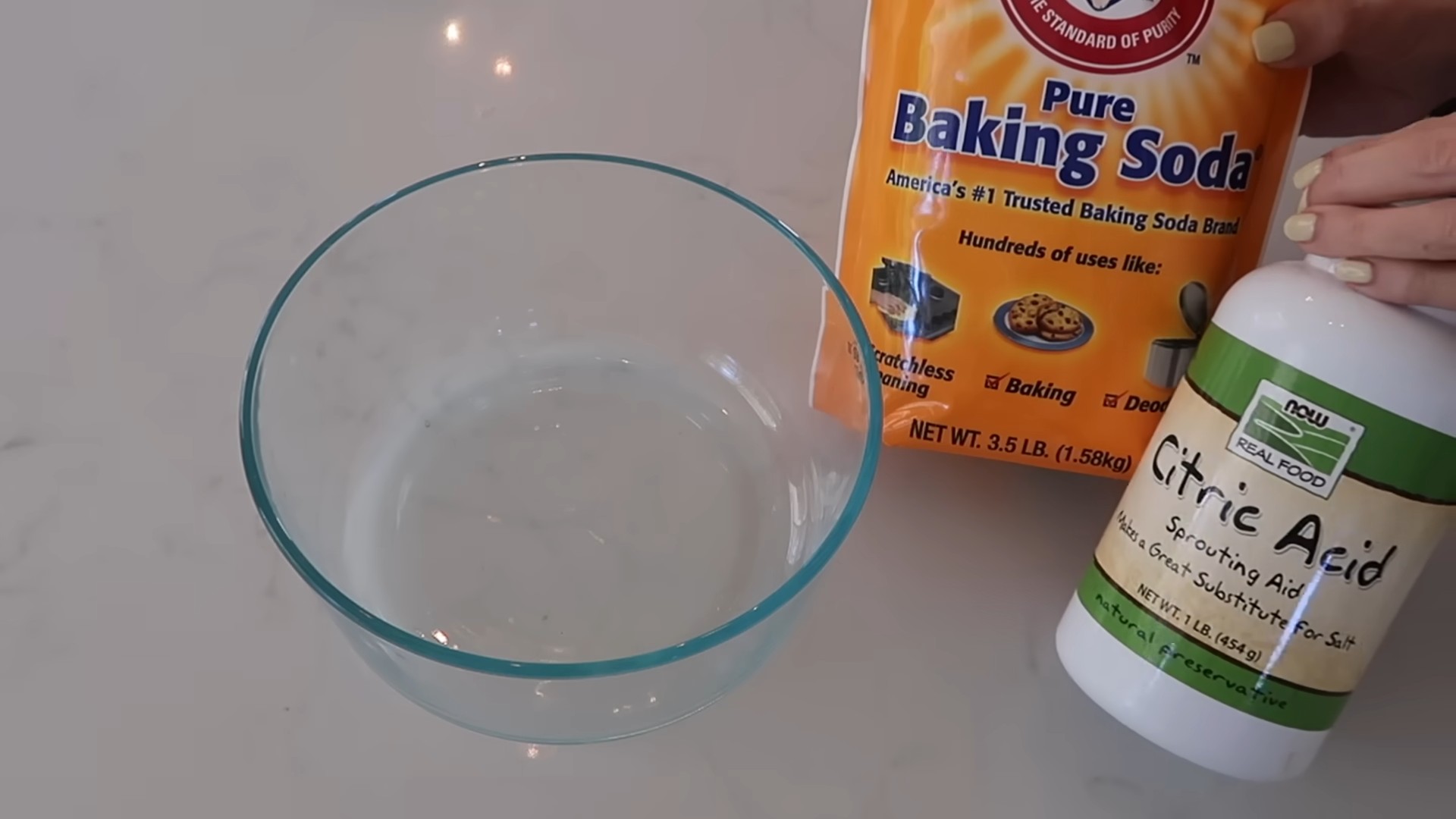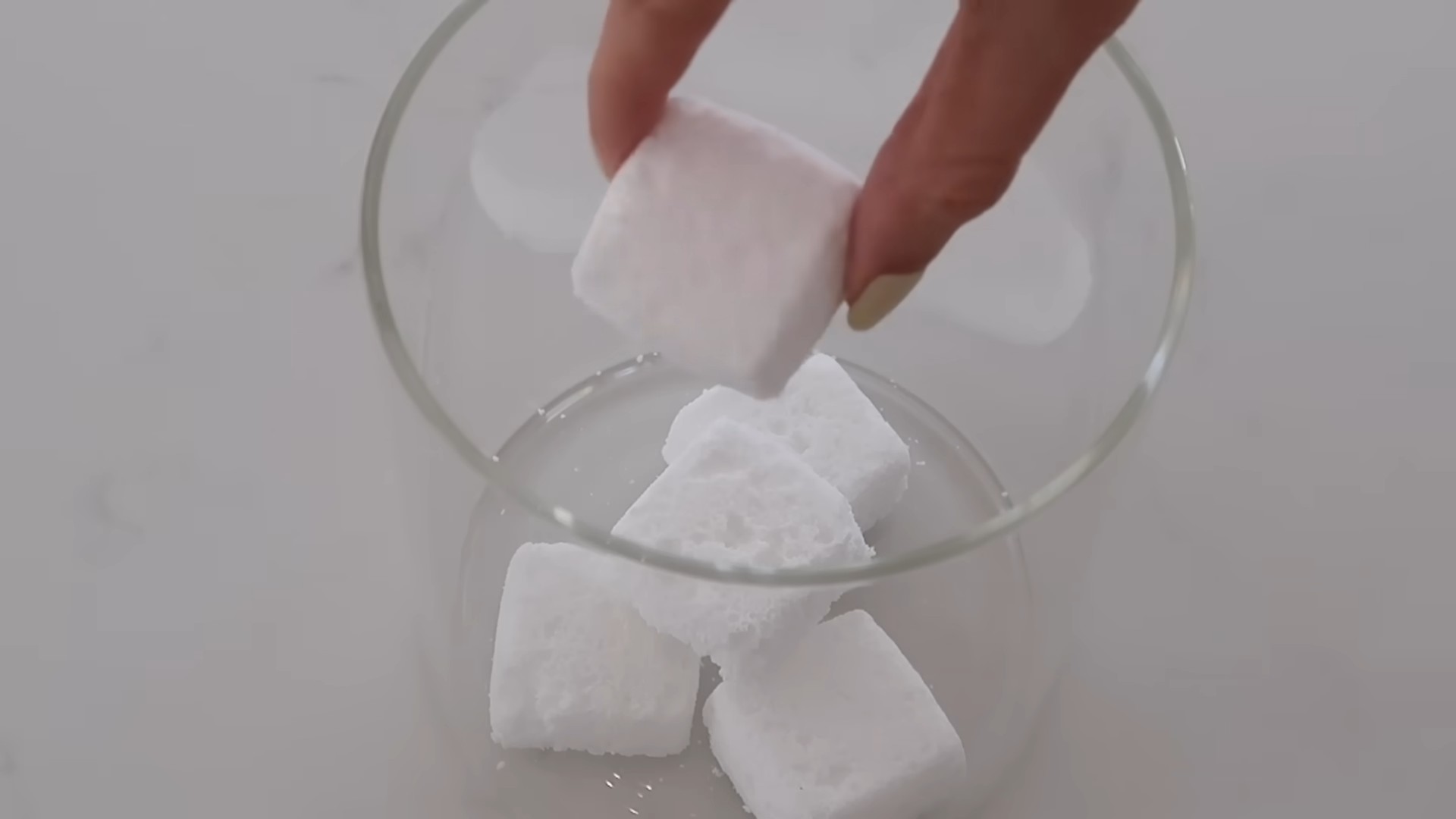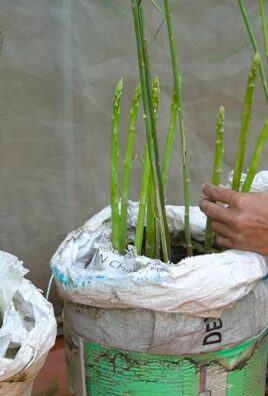Citric Acid Cleaning Hacks: Unlock the Sparkling Secrets to a Spotless Home!
Have you ever looked around your home and felt overwhelmed by the sheer amount of cleaning that needs to be done? I know I have! From stubborn hard water stains in the bathroom to grimy buildup in the kitchen, keeping everything sparkling can feel like a never-ending battle. But what if I told you there’s a simple, natural, and incredibly effective solution hiding in plain sight?
For centuries, cultures around the world have recognized the power of citrus fruits, not just for their delicious flavor and health benefits, but also for their amazing cleaning properties. Think about it – your grandmother probably squeezed lemon juice to brighten her whites! This tradition highlights the enduring effectiveness of natural cleaning agents.
That’s where citric acid cleaning hacks come in! This naturally occurring acid, found in lemons, limes, and other citrus fruits, is a powerhouse when it comes to tackling tough stains, dissolving mineral deposits, and deodorizing your home. In this article, I’m going to share my favorite DIY tricks and hacks using citric acid to make your cleaning routine easier, more eco-friendly, and surprisingly affordable. You’ll learn how to harness the power of citric acid cleaning hacks to achieve a spotless home without harsh chemicals. Get ready to ditch the expensive cleaners and embrace the natural cleaning revolution!

Citric Acid Cleaning Hacks: Your All-Natural Cleaning Powerhouse!
Hey there, fellow DIY enthusiasts! I’m so excited to share my favorite cleaning secret weapon with you: citric acid! Forget harsh chemicals and expensive cleaners; this natural powder is a game-changer for tackling all sorts of household messes. It’s eco-friendly, budget-friendly, and incredibly effective. Let’s dive into some amazing citric acid cleaning hacks that will leave your home sparkling!
What is Citric Acid and Why Use It?
Citric acid is a naturally occurring acid found in citrus fruits like lemons and limes. It’s a fantastic cleaning agent because it’s a mild acid that can dissolve hard water stains, rust, soap scum, and even some types of mold. Plus, it’s biodegradable and much safer for your family and pets than many commercial cleaners. I personally love that it doesn’t leave behind a strong chemical smell!
General Guidelines for Using Citric Acid
Before we jump into specific hacks, here are a few general tips to keep in mind:
* Always test in an inconspicuous area first: Even though citric acid is relatively mild, it’s always a good idea to test it on a small, hidden area to make sure it doesn’t damage the surface.
* Wear gloves: While citric acid is generally safe, it can irritate sensitive skin. I always wear gloves when I’m using it for cleaning.
* Avoid using on certain surfaces: Don’t use citric acid on marble, granite, or other natural stone surfaces, as it can etch them. Also, avoid using it on aluminum, as it can cause discoloration.
* Rinse thoroughly: After cleaning with citric acid, always rinse the surface thoroughly with water to remove any residue.
* Start with a weak solution: You can always increase the concentration if needed, but it’s best to start with a weaker solution to avoid any potential damage. A good starting point is usually 1-2 tablespoons of citric acid per cup of water.
* Store properly: Keep your citric acid powder in a cool, dry place in an airtight container.
Hack 1: Descaling Your Kettle and Coffee Maker
Hard water buildup can wreak havoc on your kettle and coffee maker, making them less efficient and affecting the taste of your drinks. Citric acid is perfect for descaling!
What you’ll need:
* 1-2 tablespoons of citric acid
* Water
Instructions:
1. Prepare the solution: Fill your kettle or coffee maker with water, leaving some space at the top. Add 1-2 tablespoons of citric acid, depending on the severity of the scale buildup.
2. Boil or run the cycle: For a kettle, boil the solution. For a coffee maker, run a full brewing cycle without coffee grounds.
3. Let it sit: After boiling or running the cycle, let the solution sit in the kettle or coffee maker for about 30 minutes to an hour. This allows the citric acid to dissolve the scale.
4. Rinse thoroughly: Rinse the kettle or coffee maker several times with fresh water to remove any remaining citric acid and loosened scale. I usually rinse mine at least three times to be sure.
5. Repeat if necessary: If there’s still some scale buildup, repeat the process.
Hack 2: Cleaning Your Dishwasher
A clean dishwasher is essential for sparkling dishes! Citric acid can help remove hard water stains, food residue, and odors.
What you’ll need:
* 2-3 tablespoons of citric acid
Instructions:
1. Empty the dishwasher: Make sure your dishwasher is completely empty.
2. Add citric acid: Pour 2-3 tablespoons of citric acid into the detergent dispenser.
3. Run a hot cycle: Run the dishwasher on a hot cycle. I usually use the normal or heavy-duty cycle.
4. Optional: For extra cleaning power, you can also sprinkle a tablespoon of citric acid on the bottom of the dishwasher before running the cycle.
Hack 3: Removing Hard Water Stains from Showerheads and Faucets
Hard water stains can make your showerheads and faucets look dull and grimy. Citric acid to the rescue!
What you’ll need:
* 1/4 cup of citric acid
* 1 cup of hot water
* Spray bottle or bowl
* Cloth or sponge
* Plastic bag (for showerheads)
Instructions:
1. Prepare the solution: Mix 1/4 cup of citric acid with 1 cup of hot water in a spray bottle or bowl.
2. Apply the solution: For faucets, spray the solution directly onto the hard water stains or apply it with a cloth or sponge. For showerheads, fill a plastic bag with the solution and secure it around the showerhead with a rubber band or twist tie, ensuring the showerhead is submerged in the liquid.
3. Let it sit: Let the solution sit for about 30 minutes to an hour. For stubborn stains, you can let it sit longer, even overnight.
4. Scrub and rinse: After soaking, scrub the surfaces with a cloth or sponge to remove the loosened stains. Rinse thoroughly with water.
5. Dry: Dry the surfaces with a clean cloth.
Hack 4: Cleaning Your Toilet Bowl
Citric acid can help remove hard water stains and mineral deposits from your toilet bowl, leaving it sparkling clean.
What you’ll need:
* 1/4 cup of citric acid
Instructions:
1. Pour in citric acid: Pour 1/4 cup of citric acid directly into the toilet bowl.
2. Let it sit: Let it sit for at least 30 minutes, or even better, overnight.
3. Scrub and flush: Scrub the toilet bowl with a toilet brush to loosen any remaining stains. Flush the toilet.
4. Repeat if necessary: For stubborn stains, repeat the process.
Hack 5: Removing Rust Stains
Rust stains can be a real eyesore, but citric acid can help dissolve them.
What you’ll need:
* Citric acid powder
* Water
* Spray bottle or paste
* Cloth or sponge
Hey there, fellow DIY enthusiasts! I’m so excited to share my favorite cleaning secret weapon with you: citric acid! Forget harsh chemicals and expensive cleaners; this natural powder is a game-changer for tackling all sorts of household messes. It’s eco-friendly, budget-friendly, and incredibly effective. Let’s dive into some amazing citric acid cleaning hacks that will leave your home sparkling!
What is Citric Acid and Why Use It?
Citric acid is a naturally occurring acid found in citrus fruits like lemons and limes. It’s a fantastic cleaning agent because it’s a mild acid that can dissolve hard water stains, rust, soap scum, and even some types of mold. Plus, it’s biodegradable and much safer for your family and pets than many commercial cleaners. I personally love that it doesn’t leave behind a strong chemical smell!
General Guidelines for Using Citric Acid
Before we jump into specific hacks, here are a few general tips to keep in mind:
* Always test in an inconspicuous area first: Even though citric acid is relatively mild, it’s always a good idea to test it on a small, hidden area to make sure it doesn’t damage the surface.
* Wear gloves: While citric acid is generally safe, it can irritate sensitive skin. I always wear gloves when I’m using it for cleaning.
* Avoid using on certain surfaces: Don’t use citric acid on marble, granite, or other natural stone surfaces, as it can etch them. Also, avoid using it on aluminum, as it can cause discoloration.
* Rinse thoroughly: After cleaning with citric acid, always rinse the surface thoroughly with water to remove any residue.
* Start with a weak solution: You can always increase the concentration if needed, but it’s best to start with a weaker solution to avoid any potential damage. A good starting point is usually 1-2 tablespoons of citric acid per cup of water.
* Store properly: Keep your citric acid powder in a cool, dry place in an airtight container.
Hack 1: Descaling Your Kettle and Coffee Maker
Hard water buildup can wreak havoc on your kettle and coffee maker, making them less efficient and affecting the taste of your drinks. Citric acid is perfect for descaling!
What you’ll need:
* 1-2 tablespoons of citric acid
* Water
Instructions:
1. Prepare the solution: Fill your kettle or coffee maker with water, leaving some space at the top. Add 1-2 tablespoons of citric acid, depending on the severity of the scale buildup.
2. Boil or run the cycle: For a kettle, boil the solution. For a coffee maker, run a full brewing cycle without coffee grounds.
3. Let it sit: After boiling or running the cycle, let the solution sit in the kettle or coffee maker for about 30 minutes to an hour. This allows the citric acid to dissolve the scale.
4. Rinse thoroughly: Rinse the kettle or coffee maker several times with fresh water to remove any remaining citric acid and loosened scale. I usually rinse mine at least three times to be sure.
5. Repeat if necessary: If there’s still some scale buildup, repeat the process.
Hack 2: Cleaning Your Dishwasher
A clean dishwasher is essential for sparkling dishes! Citric acid can help remove hard water stains, food residue, and odors.
What you’ll need:
* 2-3 tablespoons of citric acid
Instructions:
1. Empty the dishwasher: Make sure your dishwasher is completely empty.
2. Add citric acid: Pour 2-3 tablespoons of citric acid into the detergent dispenser.
3. Run a hot cycle: Run the dishwasher on a hot cycle. I usually use the normal or heavy-duty cycle.
4. Optional: For extra cleaning power, you can also sprinkle a tablespoon of citric acid on the bottom of the dishwasher before running the cycle.
Hack 3: Removing Hard Water Stains from Showerheads and Faucets
Hard water stains can make your showerheads and faucets look dull and grimy. Citric acid to the rescue!
What you’ll need:
* 1/4 cup of citric acid
* 1 cup of hot water
* Spray bottle or bowl
* Cloth or sponge
* Plastic bag (for showerheads)
Instructions:
1. Prepare the solution: Mix 1/4 cup of citric acid with 1 cup of hot water in a spray bottle or bowl.
2. Apply the solution: For faucets, spray the solution directly onto the hard water stains or apply it with a cloth or sponge. For showerheads, fill a plastic bag with the solution and secure it around the showerhead with a rubber band or twist tie, ensuring the showerhead is submerged in the liquid.
3. Let it sit: Let the solution sit for about 30 minutes to an hour. For stubborn stains, you can let it sit longer, even overnight.
4. Scrub and rinse: After soaking, scrub the surfaces with a cloth or sponge to remove the loosened stains. Rinse thoroughly with water.
5. Dry: Dry the surfaces with a clean cloth.
Hack 4: Cleaning Your Toilet Bowl
Citric acid can help remove hard water stains and mineral deposits from your toilet bowl, leaving it sparkling clean.
What you’ll need:
* 1/4 cup of citric acid
Instructions:
1. Pour in citric acid: Pour 1/4 cup of citric acid directly into the toilet bowl.
2. Let it sit: Let it sit for at least 30 minutes, or even better, overnight.
3. Scrub and flush: Scrub the toilet bowl with a toilet brush to loosen any remaining stains. Flush the toilet.
4. Repeat if necessary: For stubborn stains, repeat the process.
Hack 5: Removing Rust Stains
Rust stains can be a real eyesore, but citric acid can help dissolve them.
What you’ll need:
* Citric acid powder
* Water
* Spray bottle or paste
* Cloth or sponge
Instructions:
1. Prepare the solution: For light rust stains, mix 2 tablespoons of citric acid with 1 cup of water in a spray bottle. For heavier rust stains, make a paste by mixing citric acid powder with just enough water to form a thick paste.
2. Apply the solution: Spray the solution onto the rust stain or apply the paste directly to the stain.
3. Let it sit: Let the solution or paste sit for at least 30 minutes, or longer for stubborn stains.
4. Scrub and rinse: Scrub the area with a cloth or sponge to remove the loosened rust. Rinse thoroughly with water.
5. Repeat if necessary: For stubborn rust stains, repeat the process or use a stronger concentration of citric acid.
Hack 6: Cleaning Burnt Food from Pots and Pans
Accidentally burnt food in your pots and pans? Don’t worry, citric acid can help loosen the burnt residue.
What you’ll need:
* 1-2 tablespoons of citric acid
* Water
Instructions:
1. Fill the pot or pan: Fill the pot or pan with enough water to cover the burnt food.
2. Add citric acid: Add 1-2 tablespoons of citric acid to the water.
3. Boil the solution: Bring the solution to a boil and let it simmer for about 15-30 minutes.
4. Let it cool: Let the solution cool down.
5. Scrub and wash: Scrub the pot or pan with a sponge or scouring pad to remove the loosened burnt food. Wash the pot or pan with soap and water.
Hack 7: Freshening Up Your Laundry
Citric acid can also be used as a laundry booster to brighten whites and remove odors.
What you’ll need:
* 1/4 cup of citric acid
Instructions:
1. Add to the washing machine: Add 1/4 cup of citric acid to your washing machine along with your regular laundry detergent.
2. Wash as usual: Wash your clothes as usual.
Hack 8: Making Your Own Cleaning Spray
Create your own all-purpose cleaning spray with citric acid!
What you’ll need:
* 1 tablespoon of citric acid
* 1 cup of water
* Spray bottle
* Optional: A few drops of essential oil for fragrance (like lemon or lavender)
Instructions:
1. Mix the ingredients: Combine 1 tablespoon of citric acid with 1 cup of water in a spray bottle.
2. Add essential oil (

Conclusion
So, there you have it! Citric acid cleaning hacks are not just a trend; they’re a game-changer for anyone looking to simplify their cleaning routine, reduce their reliance on harsh chemicals, and achieve sparkling results. We’ve explored several ways to harness the power of this natural acid, from tackling stubborn hard water stains in your bathroom to reviving your dingy dishwasher. The versatility of citric acid is truly remarkable, making it an indispensable tool in any eco-conscious and budget-minded household.
Why is this a must-try? Because it works! Citric acid is a potent cleaning agent that effectively dissolves mineral deposits, cuts through grease, and eliminates odors, all while being gentler on the environment and your health than many conventional cleaners. Think about the time and money you’ll save by ditching multiple specialized cleaning products and replacing them with a single, powerful solution. Plus, the satisfaction of knowing you’re creating a cleaner, healthier home for yourself and your family is priceless.
But don’t stop there! Experiment with different concentrations of citric acid solutions to find what works best for your specific cleaning needs. For instance, for heavily soiled areas, you might want to increase the concentration slightly. You can also add a few drops of your favorite essential oil, like lemon or lavender, to your citric acid cleaning solutions for an extra boost of freshness and aromatherapy benefits. Another variation is to create a citric acid paste by mixing it with a small amount of water. This paste is perfect for scrubbing stubborn stains on stovetops or in sinks. Consider using it to clean your coffee maker, too! A simple solution run through the brewing cycle can remove mineral buildup and improve the taste of your coffee.
We’ve only scratched the surface of what’s possible with citric acid cleaning hacks. The possibilities are truly endless, limited only by your imagination.
Now, it’s your turn to put these citric acid cleaning hacks to the test. We encourage you to try these methods in your own home and see the amazing results for yourself. Don’t be afraid to experiment and adapt the techniques to suit your specific needs and preferences.
Most importantly, we want to hear about your experiences! Share your before-and-after photos, your favorite citric acid cleaning recipes, and any tips or tricks you’ve discovered along the way. Let’s create a community of eco-conscious cleaners who are passionate about using natural, effective, and affordable solutions to keep our homes sparkling clean. Leave a comment below, tag us on social media, and let’s spread the word about the power of citric acid! We are confident that once you experience the cleaning power of citric acid, you will never go back to harsh chemical cleaners. Embrace the simplicity, the effectiveness, and the eco-friendliness of citric acid cleaning hacks and transform your cleaning routine today!
Frequently Asked Questions (FAQs)
What exactly is citric acid, and is it safe to use?
Citric acid is a naturally occurring organic acid found in citrus fruits like lemons and limes. It’s a weak acid, making it a safe and effective cleaning agent for various household tasks. It is generally considered safe for use around children and pets, but as with any cleaning product, it’s essential to keep it out of reach and avoid ingestion. While it’s generally safe, it’s always a good idea to wear gloves when handling concentrated citric acid solutions, especially if you have sensitive skin. Direct contact with the powder can cause mild irritation.
Where can I buy citric acid?
Citric acid is readily available in most supermarkets, usually in the baking or canning section. You can also find it at health food stores, online retailers like Amazon, and even some hardware stores. Look for food-grade citric acid for cleaning purposes. It’s typically sold in powder form, which you can then dissolve in water to create your cleaning solutions. The price is generally very affordable, especially compared to specialized cleaning products.
What surfaces can I safely clean with citric acid?
Citric acid is generally safe for use on most non-porous surfaces, including stainless steel, ceramic tile, porcelain, glass, and plastic. However, it’s essential to exercise caution when using it on certain materials. Avoid using citric acid on natural stone surfaces like marble or granite, as it can etch or damage them. Also, be careful when using it on painted surfaces, as it may cause discoloration. Always test a small, inconspicuous area first to ensure that the citric acid doesn’t damage the surface.
How do I make a basic citric acid cleaning solution?
Making a basic citric acid cleaning solution is incredibly simple. Just dissolve 1-2 tablespoons of citric acid powder in 1 cup of warm water. Stir until the powder is completely dissolved. You can then pour the solution into a spray bottle for easy application. Adjust the concentration of citric acid depending on the severity of the cleaning task. For tougher stains or mineral deposits, you can increase the amount of citric acid.
Can I use citric acid to clean my dishwasher?
Yes, citric acid is an excellent natural cleaner for dishwashers. To clean your dishwasher with citric acid, simply add 1/2 cup of citric acid powder to the dishwasher’s detergent dispenser. Then, run the dishwasher on a normal cycle without any dishes. This will help to remove mineral buildup, eliminate odors, and leave your dishwasher sparkling clean. You can repeat this process every few months to keep your dishwasher in top condition.
How effective is citric acid at removing hard water stains?
Citric acid is highly effective at removing hard water stains. Hard water stains are caused by mineral deposits, such as calcium and magnesium, that are left behind when water evaporates. Citric acid works by dissolving these mineral deposits, making them easy to wipe away. To remove hard water stains with citric acid, simply spray the affected area with a citric acid solution, let it sit for a few minutes, and then scrub with a sponge or cloth. Rinse thoroughly with water.
Can I use citric acid to remove rust?
Yes, citric acid can be used to remove rust. Citric acid reacts with rust, converting it into a soluble compound that can be easily washed away. To remove rust with citric acid, soak the rusty item in a citric acid solution for several hours or overnight. The length of time will depend on the severity of the rust. After soaking, scrub the item with a brush or steel wool to remove any remaining rust. Rinse thoroughly with water and dry.
Is citric acid safe for septic systems?
Yes, citric acid is generally considered safe for septic systems. It’s a natural substance that breaks down quickly and doesn’t contain any harsh chemicals that could harm the beneficial bacteria in your septic tank. However, as with any cleaning product, it’s essential to use it in moderation. Avoid pouring large amounts of citric acid down the drain at once, as this could potentially disrupt the balance of your septic system.
What are some other uses for citric acid besides cleaning?
Besides cleaning, citric acid has a variety of other uses. It’s commonly used as a food preservative, a flavoring agent in beverages and candies, and a pH adjuster in cosmetics and pharmaceuticals. It’s also used in some laundry detergents and fabric softeners to help remove stains and brighten clothes.
How should I store citric acid powder?
Store citric acid powder in a cool, dry place in an airtight container. This will help to prevent it from clumping or absorbing moisture. Keep it away from direct sunlight and heat. If stored properly, citric acid powder can last for several years.





Leave a Comment